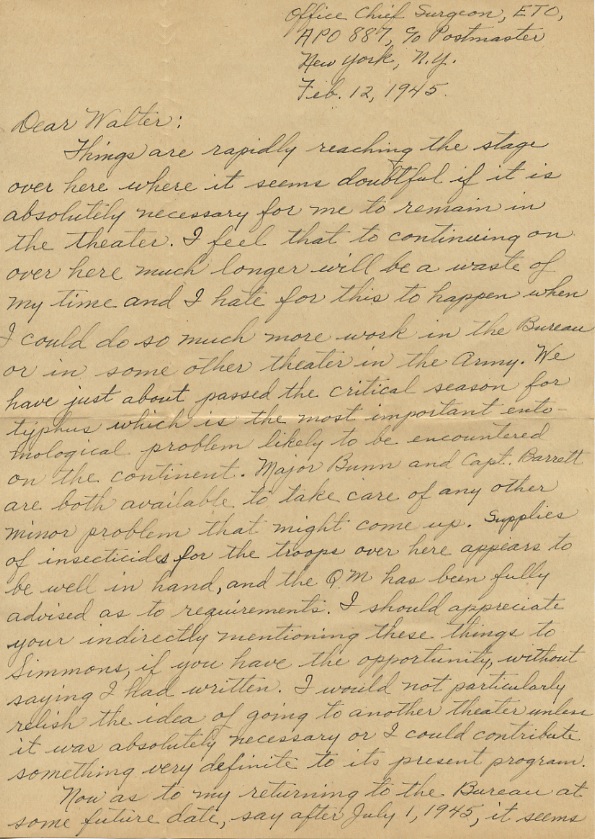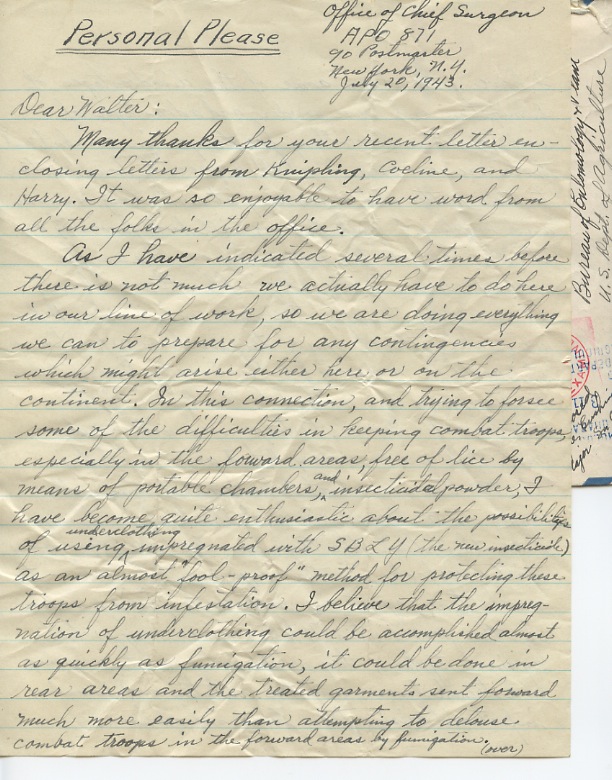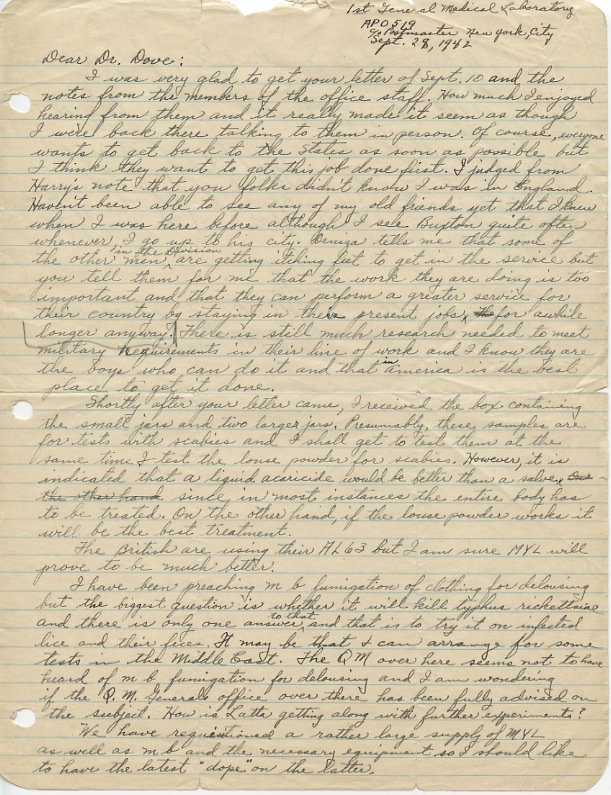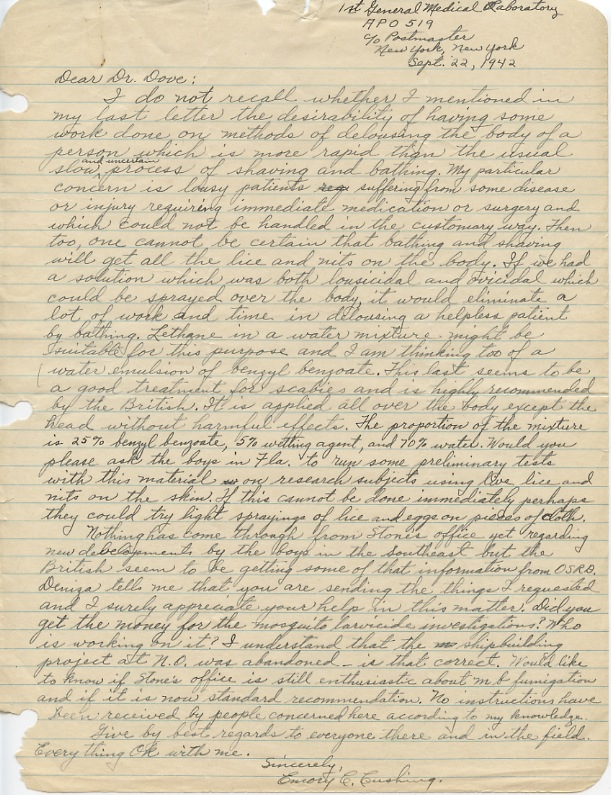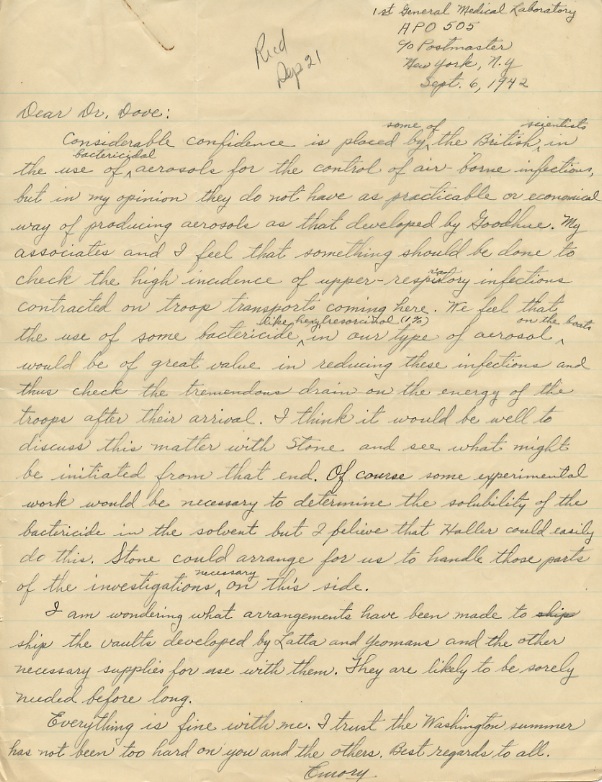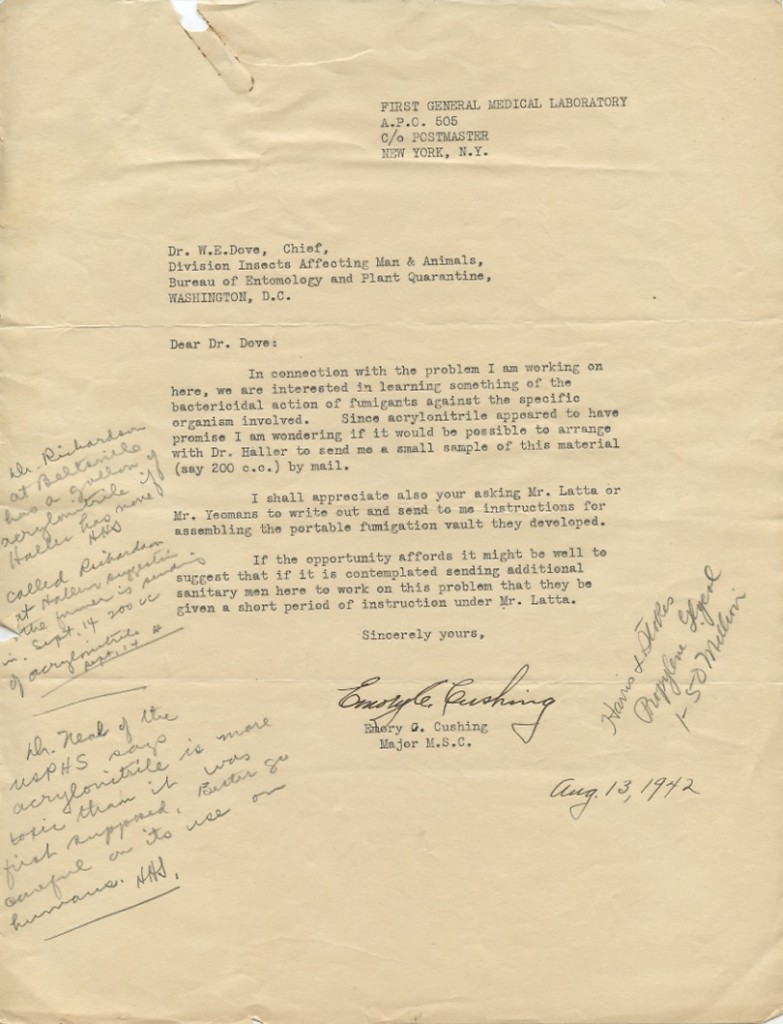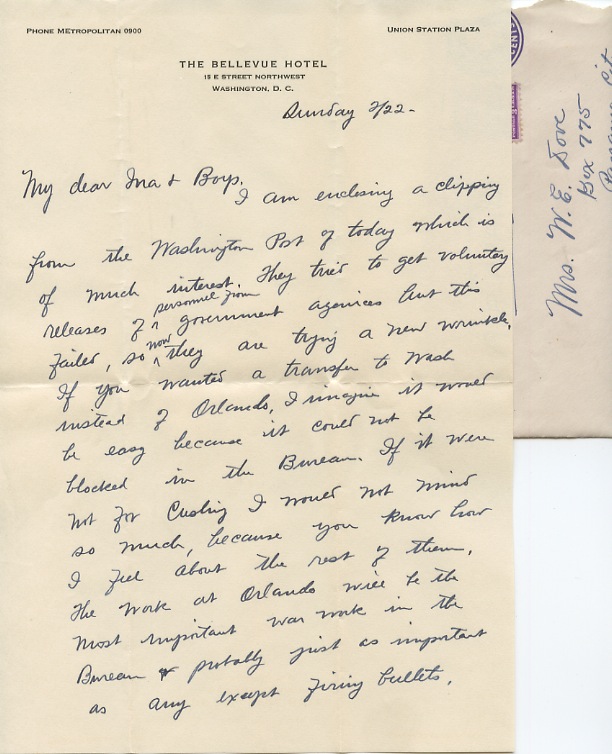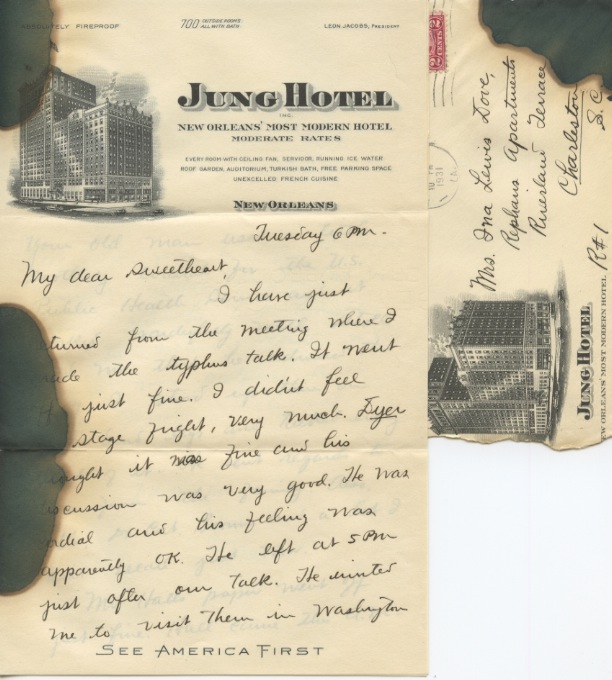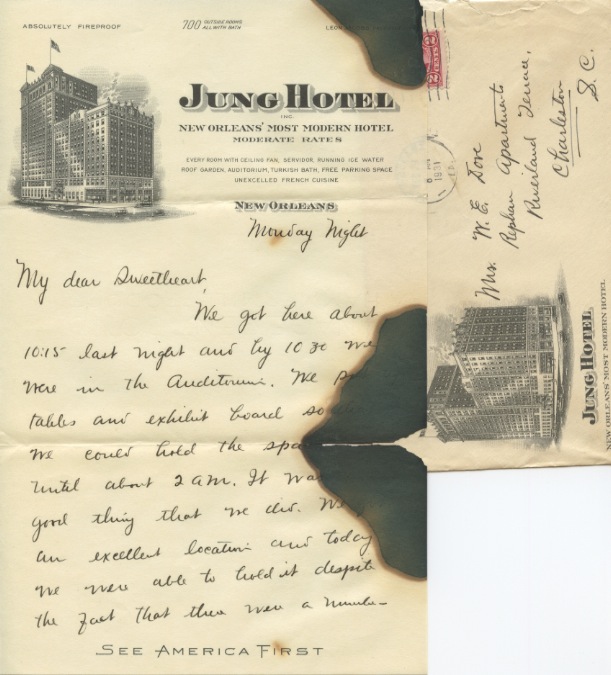Office of Chief Surgeon, ETO
APO 887, c/o Postmaster
New York, N.Y.
Feb. 12, 1945.
Dear Walter:
Things are rapidly reaching the stage over here where it seems doubtful if it is absolutely necessary for me to remain in the theater. I feel that to continue on over here much longer will be a waste of my time and I hate for this to happen when I could do so much more work in the Bureau or in some other theater in the Army. We have just about passed the critical season for typhus which is the most important entomological problem likely to be encountered on the continent. Major Bunn and Capt. Barrett are both available to take care of any other minor problem that might come up. Supplies of insecticides for the troops over here appear to be well in hand, and the Q.M. has been fully advised as to requirements. I should appreciate your indirectly mentioning these things to Simmons, if you have the opportunity, without saying I had written. I would not particularly relish the idea of going to another theater unless it was absolutely necessary or I could contribute something very definite to its present program.
Now as to my returning to the Bureau at some future date, say after July 1, 1945, it seems to me that the work of the Division has now increased to the point where it would be advantageous for both of us to be in the Washington office dividing the various phases of it, or some similar arrangement satisfactory to both of us. I should like to have any ideas you have along this line. I’m sure we will not have any difficulty in getting together on something when the time comes for me to return.
Deniza told me about all of you having scarlet fever. That was really tough and I hope you and the family are all recovered by now.
About the supply of live D. variabilis – our experiments which appeared promising at first did not prove out so it is likely now that we shall not need the specimens.
As a last thought, I wouldn’t mind staying in the Army in Washington for awhile.
Remember me to Ina and the boys and the folks there in the office.
Sincerely
Emory.

